With new technologies revolutionizing data collection, wildlife researchers are becoming increasingly able to collect data at much higher volumes than ever before. Now we are facing the challenges of putting this information to use, bringing the science of big data into the conservation arena. With the help of machine learning tools, this area holds immense potential for conservation practices. The applications range from online trafficking alerts to species-specific early warning systems to efficient movement and biodiversity monitoring and beyond.
However, the process of building effective machine learning tools depends upon large amounts of standardized training data, and conservationists currently lack an established system for standardization. How to best develop such a system and incentivize data sharing are questions at the forefront of this work. There are currently multiple AI-based conservation initiatives, including Wildlife Insights and WildBook, that are pioneering applications on this front.
This group is the perfect place to ask all your AI-related questions, no matter your skill level or previous familiarity! You'll find resources, meet other members with similar questions and experts who can answer them, and engage in exciting collaborative opportunities together.
Just getting started with AI in conservation? Check out our introduction tutorial, How Do I Train My First Machine Learning Model? with Daniel Situnayake, and our Virtual Meetup on Big Data. If you're coming from the more technical side of AI/ML, Sara Beery runs an AI for Conservation slack channel that might be of interest. Message her for an invite.
Header Image: Dr Claire Burke / @CBurkeSci

Explore the Basics: AI
Understanding the possibilities for incorporating new technology into your work can feel overwhelming. With so many tools available, so many resources to keep up with, and so many innovative projects happening around the world and in our community, it's easy to lose sight of how and why these new technologies matter, and how they can be practically applied to your projects.
Machine learning has huge potential in conservation tech, and its applications are growing every day! But the tradeoff of that potential is a big learning curve - or so it seems to those starting out with this powerful tool!
To help you explore the potential of AI (and prepare for some of our upcoming AI-themed events!), we've compiled simple, key resources, conversations, and videos to highlight the possibilities:
Three Resources for Beginners:
- Everything I know about Machine Learning and Camera Traps, Dan Morris | Resource library, camera traps, machine learning
- Using Computer Vision to Protect Endangered Species, Kasim Rafiq | Machine learning, data analysis, big cats
- Resource: WildID | WildID
Three Forum Threads for Beginners:
- I made an open-source tool to help you sort camera trap images | Petar Gyurov, Camera Traps
- Batch / Automated Cloud Processing | Chris Nicolas, Acoustic Monitoring
- Looking for help with camera trapping for Jaguars: Software for species ID and database building | Carmina Gutierrez, AI for Conservation
Three Tutorials for Beginners:
- How do I get started using machine learning for my camera traps? | Sara Beery, Tech Tutors
- How do I train my first machine learning model? | Daniel Situnayake, Tech Tutors
- Big Data in Conservation | Dave Thau, Dan Morris, Sarah Davidson, Virtual Meetups
Want to know more about AI, or have your specific machine learning questions answered by experts in the WILDLABS community? Make sure you join the conversation in our AI for Conservation group!
No showcases have been added to this group yet.
- @Palinda
- | He
Corporate Responsibility Specialist & Sustainability/ Climate Change Professional Helping Conservation, Restoration, Community Livelihood Development ESG strategy and Sustainable Development.
- 0 Resources
- 0 Discussions
- 8 Groups
Universidade Federal do Rio Grande do Norte (UFRN)
I'm a Biologist and currently a master's student. My research focuses on understanding how birds respond to a restoration experiment in a Seasonally Dry Tropical Forest exclusive to Brazil through bioacoustics.
- 0 Resources
- 0 Discussions
- 4 Groups
- @APooran
- | She/her
- 0 Resources
- 0 Discussions
- 9 Groups
- @kristian.cuervo
- | He/Him
Applied Mathematics student in Denmark, interested in applications of mathematics to ecology and nature conservation. Currently interested in developing sensors for perimeter detection in wildlife conservations in Africa.
- 0 Resources
- 4 Discussions
- 9 Groups
- @MorganeLabadie
- | She/Her
I'm an ecology researcher with extensive experience of fieldwork and project management in international contexts. I specialise in wildlife, zoonotic diseases, data collection and analysis using mainly non-invasive techniques (acoustic, camera traps, etc.) and invasive techniques
- 0 Resources
- 0 Discussions
- 4 Groups
- @Jen_NZ
- | she/her
- 0 Resources
- 3 Discussions
- 7 Groups
- @cappel
- | she/her
Wildlife Science PhD candidate working on computer vision with camera traps and bioacoustics
- 0 Resources
- 5 Discussions
- 13 Groups
- @valengsb
- | she / her
GIS specialist for Audubon Americas | Biologist with an emphasis on Conservation and Sustainable Development | Innovative approaches in the study and monitoring of biodiversity for possible, biodiverse, and just futures.
- 0 Resources
- 0 Discussions
- 18 Groups
Ecologist at Noe NGO, Project manager in restauration, rewilding, and citizen sciences program for grassland ecosystems and wild pollinators

- 0 Resources
- 1 Discussions
- 7 Groups
- @capreolus
- | he/him
Capreolus e.U.
wildlife biologist with capreolus.at


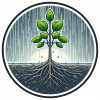


- 1 Resources
- 78 Discussions
- 16 Groups
- @JakobWiren
- | He,him
Swedish soon-to-be graduate engineer in AI/ML and robotics. Writing my master thesis in using decision trees for anti-poaching in Limpopo, South Africa. Am passionate about conservation, AI and travelling. Help me find a way to help you!
- 0 Resources
- 1 Discussions
- 13 Groups
- @fshort
- | He / Him
Boston University PhD Candidate, Biological Anthropology. Engaging in passive acoustic monitoring (PAM) of Bornean orangutans (Pongo pygmaeus wurmbii), Bornean white-bearded gibbons (Hylobates albibarbis), and red leaf monkeys (Presbytis rubicunda)
- 0 Resources
- 2 Discussions
- 2 Groups
This study breaks ground in outlining a methodology for a system of low-cost, long-term camera traps (Dispersed Environment Acquatic Cameras) that can be deployed over large spatial scales in remote marine environments...
30 November 2021
In pursuit of saving the Monarch butterflies, Carlo Mondavi- pioneer of the Monarch challenge- was inspired to develop the world's first fully electric smart tractor tractor with co-founder and Chief Executive, Praveen...
29 November 2021
Article
This research article explores the challenges of achieving environmental data justice, with the continued advancement in technology and growth in available data. The author emphasises the necessity to prioritise ...
26 November 2021
In Ellie Warren's interview with Sara Beery as part of the Technical Difficulties Editorial Series, they discussed how the hype surrounding machine learning impacts our perceptions of failure, and how conservationists...
23 November 2021
CAIMAN is a product from the Sensing Clues Foundation that automatically classifies animals on images from camera traps. It aims to be available by the end of 2021, contact the Sensing Clues team for more details. This...
18 November 2021
The GEO-Microsoft Planetary Computer Programme invites the GEO community to be among the early adopters of Microsoft's Planetary Computer. The Programme will support a number of 12-month projects that use The Planetary...
4 November 2021
On 3rd November 2021, Earthranger Announced Giraffe Conservation Foundation and Lion Guardians as the inaugral Conservation Tech Award Recipients. The two organizations are Harnessing the Power of Technology to Protect...
3 November 2021
The Centre for Statistics in Ecology, Environment and Conservation, a research group within the Department of Statistical Sciences at the University of Cape Town, is now hiring for a funded postdoc or PhD postion with...
1 November 2021
This article explores the use of IoT and Machine Learning Technologies in Ewaso Nyiro River, Kenya - which serves several communities as well as wildlife in Olpejeta Conservancy and Lewa Conservancy, among others. Data...
21 October 2021
The International Journal of Computer Vision is calling for papers on Computer Vision Approach for Animal Tracking and Modeling. Visit the Springer website for further details and submission guidelines.
20 September 2021
In this thought piece from Whale Seeker, Malcolm Kennedy considers the strengths of weaknesses of citizen science and AI, both used to analyze large amounts of conservation data, and discusses the importance of data...
19 August 2021
Today, we're chatting with our WILDLABS Fellowship: On the Edge partners at Edge Impulse about how conservation tech funding and support can be more sustainable, and why reimagining how fellowships make an impact is so...
13 August 2021
August 2025
event
September 2025
event
event
event
event
October 2025
event
event
event
December 2025
event
March 2026
November 2023
event
17 Products
Recently updated products
| Description | Activity | Replies | Groups | Updated |
|---|---|---|---|---|
| Environment conservation in Great Rift Valley. |
|
AI for Conservation | 1 day 16 hours ago | |
| Hi Chris! Send me a direct message and we can have a chat! |
+5
|
AI for Conservation, Autonomous Camera Traps for Insects, Camera Traps | 2 days 4 hours ago | |
| Hey people of the world. 10 days ago I posted here about our new GUI tool where one could drag-n-drop an image and get animals detected on... |
|
AI for Conservation | 2 days 23 hours ago | |
| Hi @CourtneyShuert We support NOAA with AI for individual ID for belugas (but from aerial and from lateral surface too). If some of our techniques can be cross-applied... |
|
AI for Conservation, Data management and processing tools | 1 week 1 day ago | |
| Hello Eugene, I just tried your service:Was wondering how possible will it be to have the option to upload a second image and have a comparison running to let the user know if... |
|
AI for Conservation, Camera Traps, Data management and processing tools, Software Development | 1 week 1 day ago | |
| Kudos for such an innovative approach—integrating additional sensors with acoustic recorders is a brilliant step forward! I'm especially interested in how you tackle energy... |
|
Acoustics, AI for Conservation, Latin America Community, Open Source Solutions | 1 week 1 day ago | |
| Thank you for your reply! It surely helps, we have use exif for a while to read metadata from images, when there is information available. Could be nice to maybe see if we... |
|
AI for Conservation, Camera Traps | 1 week 5 days ago | |
| You could just throw out that data, but I think you'd be doing yourself a disservice and missing out on some interesting insights. Are you training the AI with just pre-COVID... |
|
AI for Conservation, Animal Movement, Data management and processing tools, Human-Wildlife Coexistence | 2 weeks 1 day ago | |
| Would love to collaborate on this we are curently building agents for conservation Kind regardsOlivier |
|
AI for Conservation, Community Base | 2 weeks 1 day ago | |
| This is such a compelling direction, especially the idea of linking unsupervised vocalisation clustering to generative models for controlled playback. I haven’t seen much done... |
|
Acoustics, AI for Conservation, Emerging Tech | 2 weeks 4 days ago | |
| Hello.I am in need of assistance.I need a website for a project I am working on.Thanks 😊 |
|
Software Development, AI for Conservation | 2 weeks 5 days ago | |
| Wow this is amazing! This is how we integrate Biology and Information Technology. |
|
Camera Traps, AI for Conservation, Build Your Own Data Logger Community, Data management and processing tools, Marine Conservation, Protected Area Management Tools, Geospatial | 2 weeks 5 days ago |
Enter the Zooniverse: Try Citizen Science for Yourself!
18 March 2020 12:00am
Tutorial: Train a TinyML Model That Can Recognize Sounds Using Only 23 kB of RAM
16 March 2020 12:00am
Accepting Applications: ArcGIS Solutions for Protected Area Management
4 March 2020 12:00am
Call for Nominations: Tusk Conservation Awards
3 March 2020 12:00am
Competition: Plastic Data Challenge
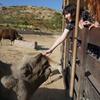 Ellie Warren
Ellie Warren
3 March 2020 12:00am
Hawai'i Conservation Conference
 Hawaiʻi Conservation Alliance
Hawaiʻi Conservation Alliance
28 February 2020 12:00am
Competition: The Artisanal Mining Grand Challenge
26 February 2020 12:00am
Listening to Nature: The Emerging Field of Bioacoustics
24 February 2020 12:00am
Team for Building of ML app for horse identification and conservation
20 February 2020 11:09pm
HWC Tech Challenge Update: Thermal Elephant Alert System
17 February 2020 12:00am
ICEI2020: 11th International Conference on Ecological Informatics
 ICEI 2020
ICEI 2020
14 February 2020 12:00am
Seafood fund seeks ideas for innovation projects up to £250k
11 February 2020 12:00am
WILDLABS Virtual Meetup Recording: Acoustic Monitoring
5 February 2020 12:00am
AI for camera trap public data
17 December 2019 9:20pm
A New Cloud Platform Unveils the Most Diverse Camera Trap Database in the World
17 December 2019 12:00am
[ARCHIVED] Workshop on Deep Learning Methods and Appliocations for Animal Re-Identification
25 November 2019 6:24pm
WACV2020 AI for Animal Re-ID: Deep Learning Methods and Applications for Animal Re-Identification
25 November 2019 12:00am
WILDLABS Virtual Meetup Recording: Drones
9 November 2019 12:00am
Camera Trapping: Incredibly Useful Resources List
5 November 2019 12:00am
Who wants to learn Python? Courses to get you started coding
2 May 2016 3:13pm
1 March 2019 9:20am
Hello everyone what are you wating for..
All US, UK, India users can enroll courses from Intellipaat (the largest IT trainng company)
check some of thier superb training list:
29 October 2019 4:52pm
Chuck's Python for Everyone course is available these days at www.py4e.com, and he's also created a course called Web Apps for Everyone www.wa4e.com. Both excellent resources, and he's a strong proponent for (and creator of) open source educational tools in general.
Lucy
Plant-Powered Camera Trap Breakthrough
15 October 2019 12:00am
Using Artificial Intelligence to Track Birds’ Dark-of-Night Migrations
9 October 2019 12:00am
Camera Trap Technology Symposium (Recordings): Bringing Developers and Users Together
2 September 2019 12:00am
ICCB 2019: 5 Key Discussions about the Future of Conservation Tech
21 August 2019 12:00am
Conservation biologists find new applications for AI tools
5 August 2019 2:57pm
Automated Identification of Indonesian Rhinos
27 July 2019 12:00am
[ARCHIVED] Position: UI/UX Machine Learning Engineer
8 July 2019 11:27pm
[ARCHIVED] Position: Senior Computer Vision Research Engineer
8 July 2019 10:42pm
Hello buzzing World!
7 July 2019 6:55pm
ML at the Edge
28 June 2019 8:16am








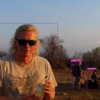

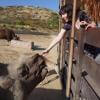


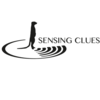








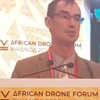






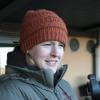













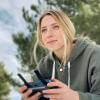


















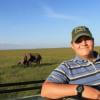




31 August 2017 9:06am
A couple of years ago I completed the Coursera course Programming for Everybody (Getting Started with Python) with Charles Severance. I found it really well paced and well taught. He's a very personable tutor, and has also written a free book Python for Everybody, available as a PDF.
I found the Coursera course on R Programming with Roger Peng to be more difficult to follow, but I'm not sure whether that was down to the teaching style or the language itself. For R, I'd definitely recommend the best place to get started is swirl - Learn R, in R!
Happy coding